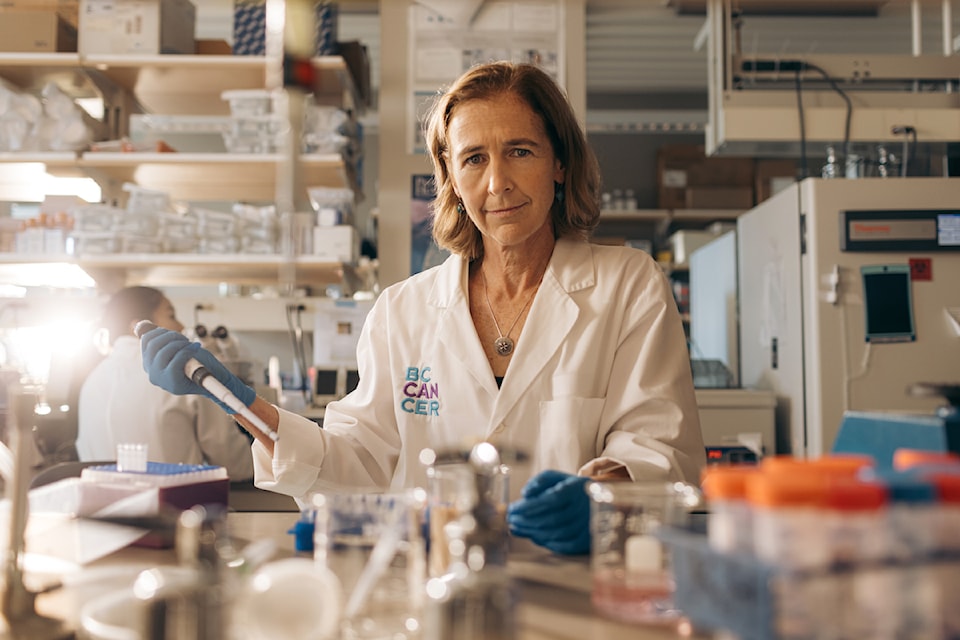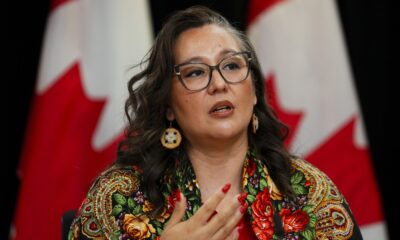Science
AI Technology Set to Revolutionize Women’s Cancer Treatment in Victoria

Innovative artificial intelligence technology is on the cusp of transforming women’s cancer treatment in Victoria, British Columbia. Researchers Dr. Jessica McAlpine and Dr. Ali Bashashati, affiliated with BC Cancer and the University of British Columbia (UBC), are pioneering new methods to enhance the diagnosis and treatment of endometrial cancer, which is the sixth most prevalent cancer among women.
This type of cancer is challenging to diagnose due to the often ambiguous appearance of its cells, leading to inconsistent or subjective interpretations by pathologists. The ambiguity complicates decisions regarding treatment necessity and type. The research team has made significant strides by categorizing endometrial cancer into four distinct groups, each associated with different clinical outcomes.
AI Enhances Diagnostic Precision
Despite this progress, the researchers identified a remaining group of tumors that exhibited considerable diversity, which necessitated further investigation. This is where the AI-powered ProMisE test comes into play. “We were able to look at these images of tumors and identify things that the pathologist couldn’t see and that the molecular tools couldn’t identify,” McAlpine explained. The AI system can predict which patients, despite appearing to have favorable prognoses, may actually face worse outcomes. This insight enables healthcare providers to tailor treatments more effectively, increasing the chances of preventing cancer recurrence.
The AI tools also aim to reduce the burden on patients by potentially sparing them from unnecessary treatments or travel. “Because of the tools we now have, some patients can avoid the toxicity of chemotherapy and radiation altogether,” McAlpine added. The implementation of these AI technologies in healthcare facilities, including those in Victoria, could occur within the next year, reliant on securing philanthropic funding and necessary approvals.
A Local Impact with Broader Implications
Victoria is positioned as a key site for piloting this innovative technology. McAlpine noted the city’s strong research community and collaboration with oncologists, making it an ideal candidate for the initial rollout. This local initiative holds personal significance for Dr. Brad Nelson, recently appointed as the Immunotherapy Research Chair at BC Cancer. Nelson has previously expressed his commitment to addressing the gaps in research related to women’s cancers.
The commitment to advancing care in this area is underscored by the legacy of Joyce Deeley, who passed away from ovarian cancer in 2001. The Trev & Joyce Deeley Research Centre in Victoria, established through a $5 million donation from her husband, Trev Deeley, in her memory, exemplifies continued efforts to support cancer research. “Gynecological cancers are some of the most difficult cancers to treat and historically are an understudied area of cancer research,” noted William Litchfield, associate vice president of the BC Cancer Foundation (Vancouver Island).
This announcement coincides with Gynecological Cancer Awareness Month, observed in September, highlighting the importance of increased focus on women’s health issues. The application of AI technology is proving particularly effective in identifying high-risk endometrial cancers that traditional diagnostic methods often overlook. McAlpine emphasized that this is merely the beginning, stating, “There are so many other applications we’re also looking at. [AI tools] offer a more personalized or precision approach. You’re not treating everybody the same.”
The ongoing research and potential integration of AI in cancer treatment could significantly impact patient care, not only in Victoria but across British Columbia and beyond. As the healthcare community continues to explore these advancements, the hope is to improve outcomes and elevate the standard of care for women facing cancer diagnoses.
-

 Politics4 weeks ago
Politics4 weeks agoSecwepemc First Nation Seeks Aboriginal Title Over Kamloops Area
-

 World5 months ago
World5 months agoScientists Unearth Ancient Antarctic Ice to Unlock Climate Secrets
-

 Entertainment5 months ago
Entertainment5 months agoTrump and McCormick to Announce $70 Billion Energy Investments
-

 Science5 months ago
Science5 months agoFour Astronauts Return to Earth After International Space Station Mission
-

 Lifestyle5 months ago
Lifestyle5 months agoTransLink Launches Food Truck Program to Boost Revenue in Vancouver
-

 Technology3 months ago
Technology3 months agoApple Notes Enhances Functionality with Markdown Support in macOS 26
-

 Lifestyle3 months ago
Lifestyle3 months agoManitoba’s Burger Champion Shines Again Amid Dining Innovations
-

 Top Stories2 months ago
Top Stories2 months agoUrgent Update: Fatal Crash on Highway 99 Claims Life of Pitt Meadows Man
-

 Politics4 months ago
Politics4 months agoUkrainian Tennis Star Elina Svitolina Faces Death Threats Online
-

 Sports5 months ago
Sports5 months agoSearch Underway for Missing Hunter Amid Hokkaido Bear Emergency
-

 Politics5 months ago
Politics5 months agoCarney Engages First Nations Leaders at Development Law Summit
-

 Technology5 months ago
Technology5 months agoFrosthaven Launches Early Access on July 31, 2025





















